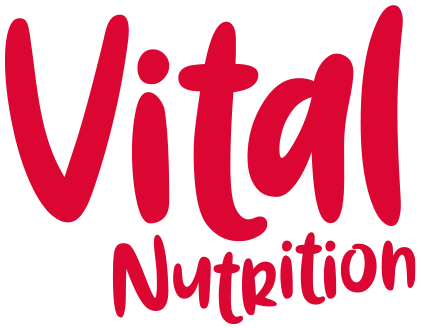Vital Nutrition for Men’s Health
You may have noticed some interesting looking facial hair around this month as Movember takes over social media, workplaces and community groups near you, in a campaign to help raise awareness about issues that affect men’s health. From mental health and suicide prevention to raising awareness about prostate and testicular cancers, this annual event is designed to help men take proactive steps towards a happier and healthier life.
Men have slightly different nutritional needs to women, and that will also depend on what your own health goals are, but in general, it is recommended that men have a higher calorie intake, need a little more carbohydrate, protein and fat than women of the same age.
Minerals like zinc, selenium and magnesium may have particular benefits for men’s health, along with omega 3 fats, B vitamins, vitamin C and D – especially at this time of year. A well-balanced diet incorporating a variety of whole foods, including fruits, vegetables, lean proteins, nuts, and seeds, can help provide these essential nutrients and the Mediterranean diet is packed with plenty of foods and nutrients that have specific benefits for men’s health.
Keeping alcohol, sugar and processed foods to a minimum is a good foundation and if you are considering changing your diet for the better, take it one meal at a time. Adding a little extra protein in the form of nuts and seeds and natural yoghurt to breakfast will help you feel fuller for longer. Getting an extra portion of vegetables from soups or seasonal super salads at lunchtime, or switching up dinner to improve the balance on your plate will make a big difference to your health almost immediately.
Here are some of my favourite foods for men’s health.
Nuts are packed with fibre, protein, healthy fats, vitamins and minerals like zinc and selenium – nutrients that are really important to help support a healthy cardiovascular system and protect the prostate, so a handful a day is a great addition to your diet. Walnuts, pecans, almonds and brazil nuts are great.
Oily fish – a lean protein that is brimming with anti-inflammatory omega 3 fats, oily fish like salmon, mackerel, herring, trout and sardines. It is recommended that men eat oily fish 3 x a week for optimum health benefits that include heart health, brain and mood support and anti-inflammatory effects.
Green tea has calming effects and one study showed that men who drank 7 cups of green tea a day had reduced risk of prostate cancer. Just remember that it still contains caffeine, so if you get up to pee in the middle of the night, it is probably best to drink your green tea earlier in the day.
Flaxseed is a great source of fibre, so it is brilliant for digestive health, but it also seems to have a balancing effect on testosterone thanks to an ingredient called lignans, found in the husk of flaxseed. Studies show that lignans have the potential to reduce the risk of prostate cancer and may help to reduce PSA levels when eaten regularly. Get in to the habit of adding flaxseed to your porridge, yogurt, soups, or even on top of your curry or chilli. 1-2 tablespoons a day is ideal, and choose the milled version like local brand Linwoods, for the most benefits.
More than 5 a day – the more vegetables you can pack into your diet, the better. Include one of the brassica family like cabbage, cauliflower, broccoli or kale every day as they are rich in sulphur-containing compounds required for testosterone metabolism. A carrot a day could help maintain a heathy digestive system and the more colour your can get from the vegetables on your plate, the higher your antioxidant intake. Throw another pea in the pot!
Peas, beans and lentils may have a hormone balancing and cardio protective effect for men’s health. They are also a great source of fibre to help support a healthy microbiome. Aim to include pulses a few times a week. Houmous, lentil soups, chickpea curry or falafels are tasty ways to include these fibre-rich foods.

